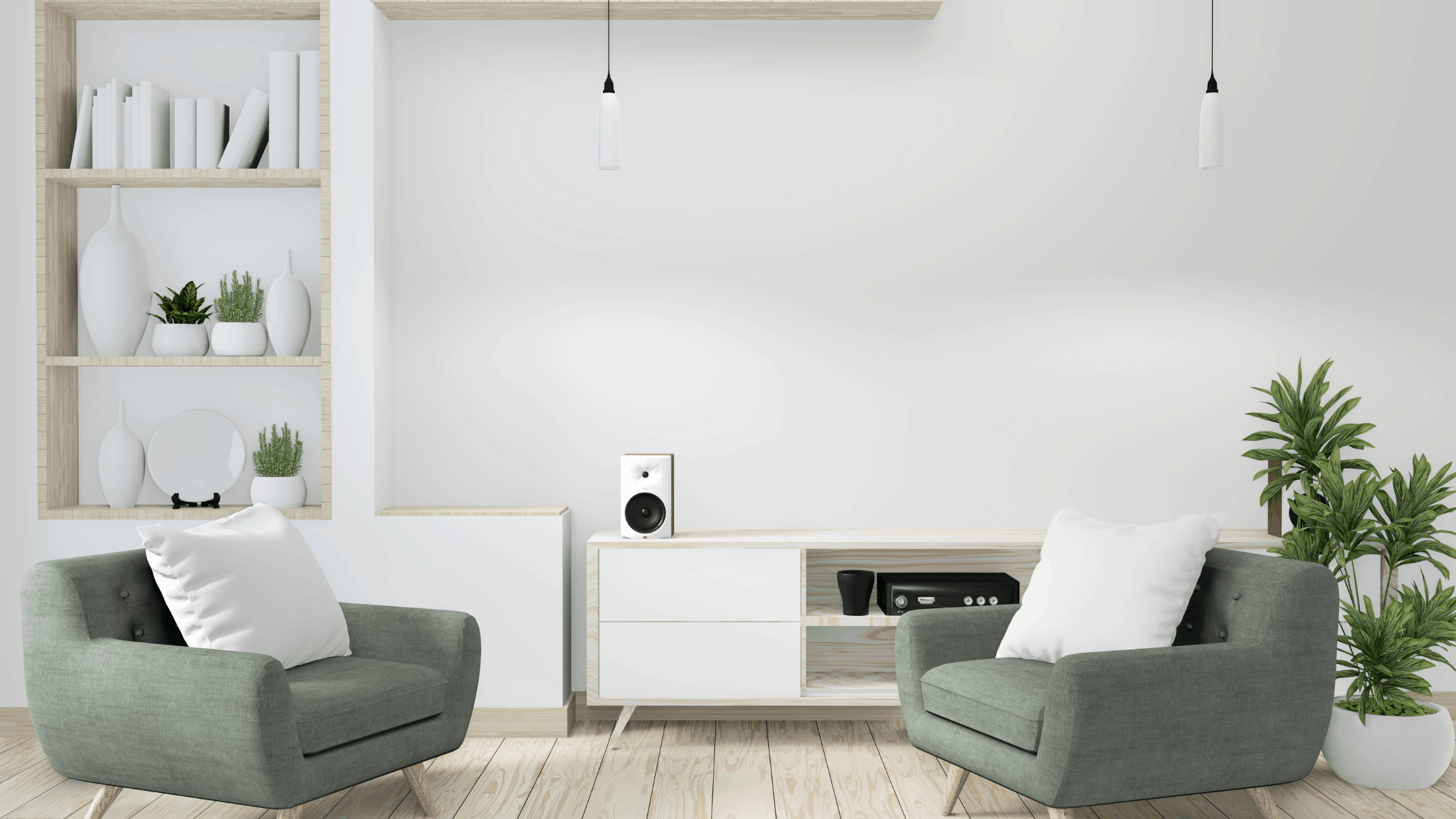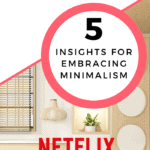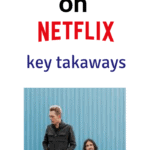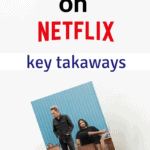How does one become a minimalist? Why should we shop less and live more? The Minimalists, Joshua and Ryan, are back on Netflix to answer those questions in their new documentary The Minimalists, Less is Now.
Here I’ll share my takeaways and review of the show. I hope you’ll check it out and join me in the conversation by posting a comment on this video.
What is minimalism?
When I think of minimalists I often picture extremest living with just a few sparse possessions in an apartment with all-white walls. But I like Joshua’s definition that minimalism is the intentional use of the resources you have. The things in your home should be useful or bring you joy.
“Minimalism is the intentional use of the resources you have”
Joshua Fields Millburn
It’s not about having only 5 books, or 30 clothing items, it’s simply the mindful practice and awareness of the things that surround us.
Now, I have to admit, the show did seem a little preachy and theatrical at times. There were a lot of experts giving sort of doomsday statistics about the cost of clutter.
But I did enjoy learning more about Joshua and Ryan’s background, particularly that they had a poor upbringing, but also lived in cluttered homes. I could relate to this having experienced a lot of financial instability and growing up in messy houses.
Ryan made the connection between being poor and having a lot of stuff. He explained that if someone gives you something you take it and keep it, filling that void with stuff. If you think you don’t have enough and feel like you are not enough, there could be a tendency to hold onto things because of this feeling of lack and inadequacy.
Becoming a minimalist really starts with a mental shift.
Being grateful, trusting that things will work out, knowing that memories are something you keep inside and that you don’t have to surround yourself with lots of unwanted things, are part of this mental shift.
Along with Joshua and Ryan, there are expert guests and regular folks who have embraced minimalism. Their message being that freedom, good health, time for creativity and community are the true meanings of happiness, not stuff. You can’t buy your way to happiness or out of all problems.
One of the best takeaways (you’ll have to listen for it because it’s towards the end), is when Joshua says that if you do not make the mental shift towards minimalism or intentional living, you will rebuy things and fill your home again with clutter.
Once the clutter was eliminated he found the space to ask deeper questions like –
- When did I give so much meaning to all these material possessions?
- What is truly important in my life?
- Why have I been so disconnected?
- Who is the person I want to become, and how will I define my own success?
Working nearly 20 years as a Professional Organizer, I couldn’t agree more. I’ve worked with folks to remove truckloads of clutter from their homes, but without the behavioral changes that come through mindfulness, the accumulation starts up again very quickly.
Indicators that decluttering could help you –
- Are you constantly thinking If I had X, then I’d be happy, as if happiness is conditional and lives in the future
- Are you an “organized hoarder”? Owning thousands of things, but neatly contained.
- Do you often have buyer’s remorse? Buying lots of things that don’t ultimately fix your problems or create new ones?
- Does everything in your home serve a purpose or bring you joy?
- Does your life seem unnecessarily complicated?
- Does it feel like your stuff is sucking the life out of you?
Minimalism is the thing that gets us past the things, so we can make room for life’s most important things, which actually aren’t things at all.
Joshua Fields Millburn
How can I declutter quickly?
There are two decluttering strategies mentioned in the Minimalist show.
The tactic Ryan used to become a minimalist quickly was to have a packing party. He and Joshua packed up everything in his apartment as if he was moving out, then only unpack the things he needed. Over the next three weeks he only pulled out 20% of what was in the boxes. Pretty extreme, but effective. He said at the end of the experiment he felt like he got his time back, and his life. He had a completely new focus, pretty powerful right?
The second tactic is called the Minimalist game or #LessisNow challenge. Partner up with a friend for accountability. The rules are on day 1 you eliminate one item from your home, day 2, two items and so on. You can sell, recycle, or donate the items, but they have to be gone from your house by midnight. The challenge is how long you can make it through the month. The thought here is that you gain momentum, and there is a snowball effect of decluttering items that do not bring you joy and are not useful.
I hope you will watch The Minimalist, Less is Now and share your takeaways with me in the comments of this video. You can follow the Minimalist’s Joshua and Ryan @theminimalist on Instagram or on their blog – https://www.theminimalists.com/
Want to help others become minimalists? Start your own decluttering business!
There are many things to consider when starting an organizing business like:
- What will I name my business?
- Where will I find clients?
- How do I become an organizer?
- Do I need to be certified?
- How will I structure my business?
You have come to the right place! Check out my other blogs on starting a decluttering business:
How to Start a Professional Organizing Business
The Ultimate Reading List for (wannabe) Certified Professional Organizers
How to Create a Name for your Organizing Business
7 Ways to Get Clients for your Professional Organizing Business
Get a copy of my free guide “Professional Organizer’s Launch Guide” HERE
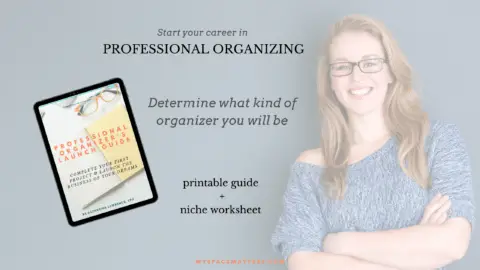
When you are ready to start your own decluttering business, check out all my courses on working as a professional organizer in my course bundle for the best price on courses to create and market your organizing business and design a system of organization that will work with all your clients no matter how small or large their volume of clutter!
Happy Organizing!

